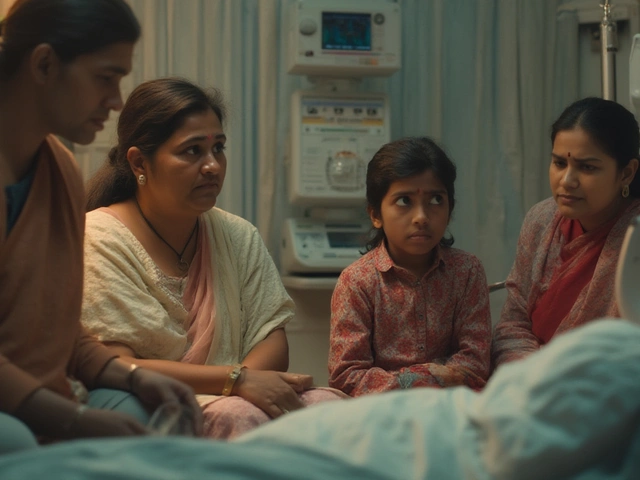Aggressive Cancers: What You Need to Know About Fast-Spreading Tumors in India
When we talk about aggressive cancers, cancers that grow and spread rapidly, often before symptoms appear. Also known as high-grade tumors, these cancers don’t wait for warning signs—they move fast, making early detection critical. In India, where many people delay medical visits due to cost, stigma, or lack of access, aggressive cancers like pancreatic, liver, and certain types of lung and breast cancer often go undetected until they’re advanced. That’s why understanding them isn’t just about medical facts—it’s about survival.
What makes a cancer aggressive? It’s not just how big the tumor is, but how fast it divides, how well it hides from the immune system, and how quickly it invades nearby organs or spreads through the blood. Chemotherapy, a common treatment used to kill fast-growing cancer cells is often the first line of defense, but it’s not always enough. Some aggressive cancers resist standard drugs, forcing doctors to turn to newer targeted therapies or clinical trials. In India, access to these advanced treatments varies widely by region and income, which is why knowing the signs early can make the difference between treatment and tragedy.
Cancer symptoms, the warning signals your body sends when something’s wrong for aggressive cancers are often subtle—or mistaken for something harmless. Unexplained weight loss, persistent fatigue, pain that doesn’t go away, or a lump that grows quickly aren’t normal. They’re red flags. And while not every symptom means cancer, ignoring them when you’re in your 40s, 50s, or 60s could cost you time you can’t get back. Many of the articles here break down real cases from Indian clinics, showing how people missed early signs, what finally pushed them to act, and what happened next.
Some of these cancers are linked to lifestyle—smoking, alcohol, poor diet, or pollution. Others, like inherited mutations in BRCA genes, are hidden in family history. Either way, knowing your risk isn’t about fear—it’s about action. Screening, even if it’s just a basic ultrasound or blood test, can catch tumors before they turn deadly. And if you’ve been told you have an aggressive cancer, you’re not alone. The posts below share real stories from patients, doctors, and caregivers across India, covering everything from treatment options that actually work to the hidden side effects of drugs that aren’t talked about enough.
You won’t find sugar-coated advice here. Just facts. Real experiences. And the hard truths about how aggressive cancers behave in the Indian healthcare system—where delays happen, drugs are expensive, and patients often fight alone. But you’ll also find what works: what tests to ask for, which symptoms to track, and how to push back when you’re not being heard. This isn’t just information. It’s a toolkit for staying alive.

Which Cancer Spreads the Fastest? Fastest-Metastasizing Cancers Explained
Pancreatic, liver, and lung cancers spread the fastest, often before symptoms appear. Learn which cancers are most aggressive, why they spread so quickly, and what you can do to catch them early.

Understanding Which Insurance Plans Cover IVF
Mar, 22 2025



